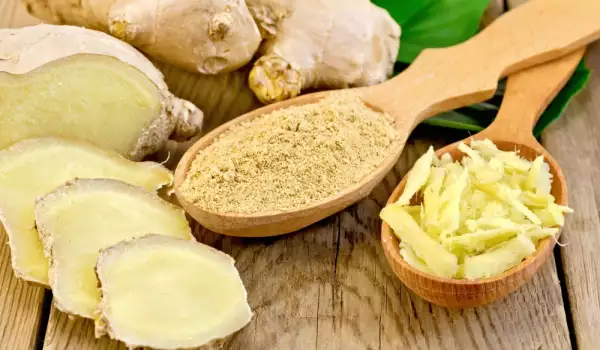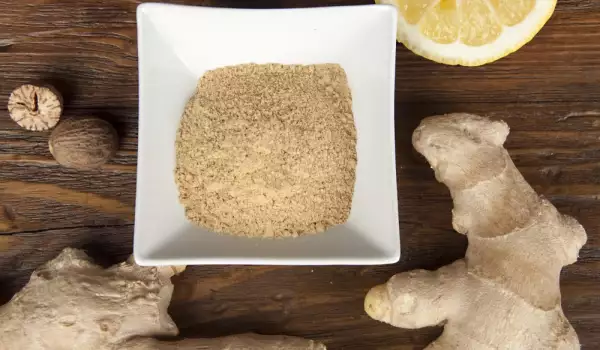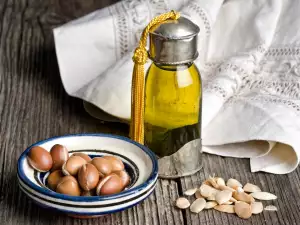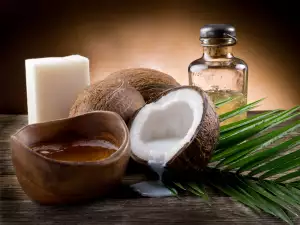The plant ginger belongs to the Zingiberaceae family, along with other familiar spices such as turmeric and cardamom. It was among the first to come to our continent from China and today it is believed that every home should always have ginger, because of its incredibly useful properties.
Although it is mostly associated with culinary purposes, ginger definitely goes beyond this use, it is much more than a spice.
An essential oil is also obtained from it, known in aromatherapy as a powerful oil, because it gives courage and lifts the mood. It is a concentrated product, so it has a much more effective effect than the plant itself.
General characteristics of ginger essential oil
Ginger extract has antiseptic properties, disinfects small wounds, but can also be used for eczema and other minor imperfections.
It is characterized by high antioxidant activity. It protects against free radicals and reverses the signs of aging. It is recommended in the care of mature and dry skin. If used regularly, the oil can improve its elasticity, moisturize it and make it softer. It also treats skin problems, very effectively soothes redness. The product pleasantly warms the body, improves blood circulation and tones during massage.
Its applications and benefits are numerous and it is good to have information about them.
Preparation and chemical composition of ginger essential oil
Ginger essential oil is obtained by steam distillation from the roots of the Zingiber Officinale plant. The color of the resulting oil is amber-yellow.
Its aroma can be defined as exotic, slightly spicy, with a hint of citrus and is its most characteristic feature because it can vary widely depending on the distillation and the quality of the root being processed. Distillation of fresh ginger root can result in an aromatic superior oil with extraordinary benefits.
The aroma of fresh ginger root essential oil is woody, spicy and earthy, with warm but spicy hints. Although it evokes different associations, experts define the smell as clear and intense.
This wealth of aromatic nuances in aromatherapy works in two ways: as a balancer and a stimulant at the same time. It relieves anxiety and calms emotions. On the other hand, it removes fatigue and stimulates by bringing perfect harmony to the body.
The oil is characterized by high volatility and is therefore usually used along with other essential oils.
Chemical composition of ginger essential oil

Ginger oil has a rich chemical composition. Its main ingredients are phenols, gingenol, gingiserenin, tingerone and others. It is also a rich source of manganese, magnesium, potassium, copper, iron, zinc, phosphorus, vitamins B3, B6, C, amino acids.
How to make it at home?
It is quite easy to make the oil at home as well. All it takes is one cup of fresh ginger root, one and a half cups of olive oil, and a desire to make your own homemade ginger oil.
Rinse the roots under cool water and let them dry for an hour. The raw material is grated on a grater. Put it in a fireproof bowl or a small baking pan, add olive oil and put it in the oven, preheated to 70°C, for two hours. After that, the ready-made oil is filtered through cheesecloth into a clean bottle. It will stay fresh for up to 6 months if stored in a cool place.
Benefits of using ginger essential oil
- For upset stomach and indigestion - ginger essential oil is one of the best natural remedies for colic, indigestion, diarrhea, cramps, stomach pain and vomiting. It is also very effective as a natural nausea reliever.
- Treats various infections - the product acts as an antiseptic that removes infections caused by microorganisms and bacteria. These include intestinal infections, bacterial dysentery and food poisoning. The oil also has antifungal properties.
- Relieves respiratory infections - ginger oil clears mucus from the throat and lungs, therefore it is known as a natural remedy for colds, flu conditions, coughs, asthma, bronchitis. Because it has an expectorant effect, ginger essential oil tells the body to increase the amount of secretions in the respiratory tract, which soothes the irritated area.
- Reduces inflammation - the ingredient in ginger essential oil called zingibain is responsible for its anti-inflammatory properties. This important enzyme relieves pain and muscle cramps, arthritic conditions, migraines and acts as a headache remedy. Ginger essential oil reduces the amount of prostaglandins in the body - these are the compounds associated with pain.
- Strengthens heart health - ginger essential oil has the property of lowering cholesterol levels and blood clotting. It improves lipid metabolism, reducing the risk of cardiovascular disease and diabetes.
- It is rich in antioxidants - ginger root contains many antioxidants. These are the substances that help prevent cell damage caused by oxidative stress. Oxidative damage plays a major role in disease today and is associated with health conditions such as heart disease, cancer, and dementia.
- It is a natural aphrodisiac - ginger essential oil increases sexual desire and is used in the intimate sphere.
- Relieves anxiety - in aromatherapy, ginger essential oil relieves feelings of restlessness, anxiety, depression and exhaustion. Improves sleep, stimulates the feeling of courage and lightness. In Ayurveda, ginger oil is believed to treat emotional problems such as fear, abandonment and lack of self-confidence or motivation.
- Relieves muscle and menstrual pain - the pain-fighting components in ginger essential oil provide relief from menstrual cramps, headaches, back pain. It is effective in treating muscle and joint pain and this is due to its ability to reduce inflammation and increase circulation.

Ginger essential oil application
1. Ginger extract contains various compounds, namely gingerol and its secondary metabolites, which reduce inflammation and act as immune system modulators.
2. It is believed that ginger essential oil also has analgesic properties, that is, it can be used as an aid to deal with pain of a different nature - muscle, menstrual and others.
3. In diffusers, this oil is very popular because it relieves symptoms of nausea and general upset stomach. It also has an aphrodisiac effect.
4. In skin care, ginger oil also has a successful application. It has strong antioxidant properties that can protect the skin from damage caused by free radicals. The astringent, anti-inflammatory and antiseptic properties of ginger oil make it suitable for application on the skin for acne.
5. Ginger essential oil can also be applied to the hair - applying it to the scalp and hair, diluted in a suitable base, can strengthen the hair, soothe itching and irritation of the scalp and treat dandruff.
Combination with other essential oils
Ginger essential oil pairs well with bergamot, cedarwood, clove, eucalyptus, frankincense, geranium, grapefruit, juniper, lemon, patchouli, rose, sandalwood, ylang-ylang and others.
Indications for the use of ginger essential oil
Ginger essential oil rarely has side effects. In high doses, the oil may cause mild signs of heartburn, diarrhea and irritation in the mouth. Pregnant women or nursing mothers are better off avoiding it.
Patients taking blood thinners should also be careful and consult a doctor if they want to take this oil.
It is contraindicated to use it along with diabetes medications because it can lower blood sugar levels.
When taking high blood pressure medication, ginger oil should also be avoided.
















Comments